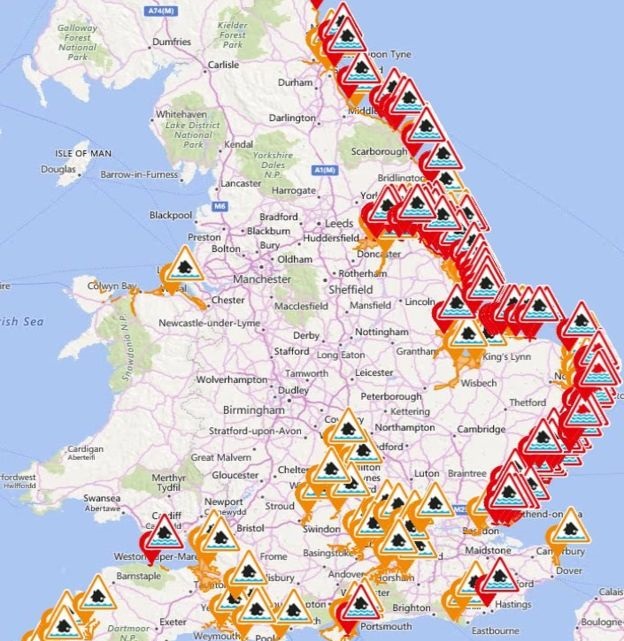
Farmers on the east coast of England are being warned to be vigilant over extreme weather as the Environment Agency has posted 11 severe flood warnings - meaning danger to life - due to the risk of tidal flooding.
The severe warnings - the agency's highest possible alert - are in place for coastal areas of Essex, Norfolk, Suffolk and Lincolnshire.
The high tide in Lincolnshire passed without any reported incidents on Friday morning (13 January), but forecasters said the risk would continue for another 24 hours, with further warnings issued in Suffolk from 21:45 GMT.
Lincolnshire County Council are urging farmers to move their livestock further inland away from the flood risk area if possible.
There are 88 flood warnings, meaning flooding is expected and immediate action required, and 82 flood alerts.
An evacuation is under way in Jaywick, Essex, and a similar operation will begin in Great Yarmouth, Norfolk, later this morning.
'Could affect properties on the coast'
The Environment Agency has said: “Gale force winds combining with high tides are likely to result in large waves carrying dangerous debris, like rocks. The conditions are also expected to cause traffic disruption and could affect properties on the coast.”
Environment Agency chief executive Sir James Bevan told BBC Radio 4's Today programme the first tide to hit the coast on Friday was "slightly under the height that we expected".
"The second, due this evening, may come out slightly higher than has been anticipated," he added.
"And so we will stay very active throughout the day on the ground, we will continue to warn and inform the communities that are at risk."
Flooding in the UK has been a hot topic of debate, mainly due to how the Government manages it and prevents it.
In November last year, thinktank Green Alliance released a report looking into the floods of winter 2015/2016 in Northern England, they explained the damage cost the economy £5 billion in 2015.
The thinktank warned if foods continue to be managed in the same way, damages could increase by as much as 150% by the 2080s.
